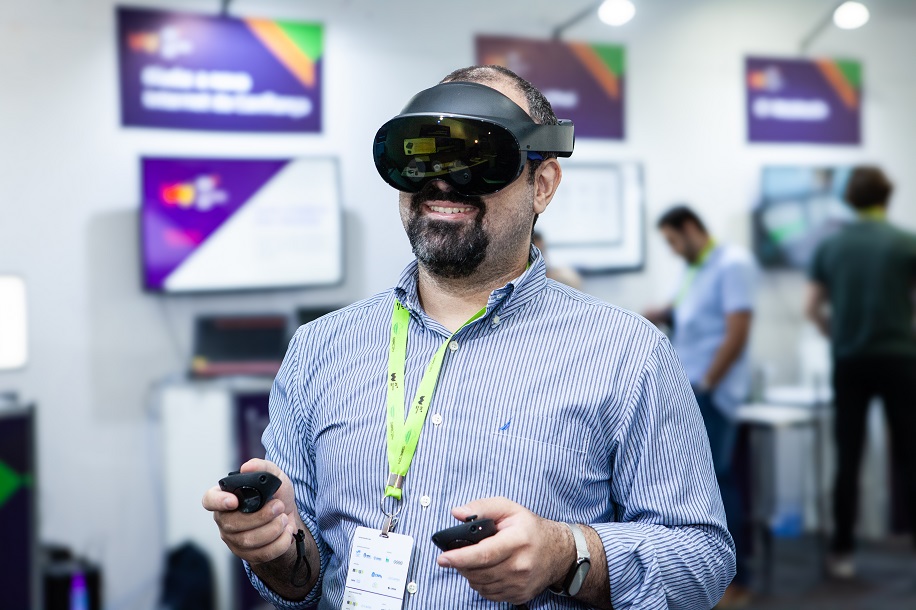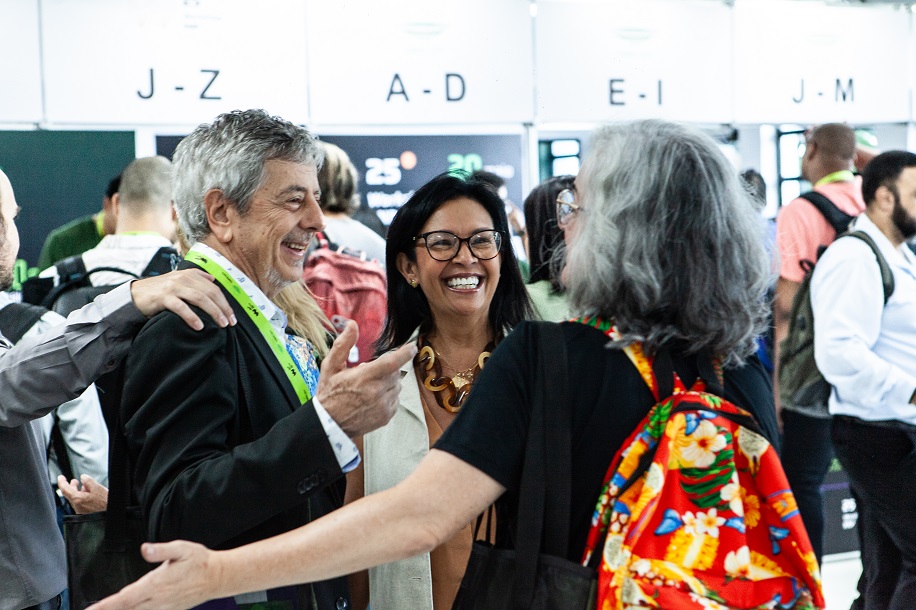In a nostalgic and ‘roots’ atmosphere, WRNP rescues the event’s traditions amidst the debate on new technologies
The first day of the 25th edition was marked by the event's return to a university campus, after more than two decades
Back at a university after 24 years, the RNP Workshop (WRNP) began this Monday (20) in a mixed atmosphere of nostalgia and expectation about the impact of new technologies, especially with the robust advances in artificial intelligence.
Held at the Computer Institute of the Fluminense Federal University (UFF), in Niterói (RJ), the 25th edition was opened by the director of Research, Development and Innovation of RNP, Iara Machado, who reinforced the importance of bringing the WRNP to a university campus — the last time had been in the 2nd edition of the event, in 2000, at the Federal University of Minas Gerais (UFMG).
“I am very happy to be here starting another WRNP. And this is a ‘root’ WRNP, going back to the origins. Doing it here at the university was a challenge and at the same time a very good experience. Returning to the home where I graduated is incredible”, said the physicist and researcher, who completed her master’s degree in Computer Networks and Distributed Systems at UFF.
Indeed, everyone seemed to be at home. As young students walked across campus toward their classrooms, professors and researchers embraced each other and took advantage of the university environment to reminisce about meetings, projects and, in many cases, times of joint study and research.
The past met the future at various moments. In the main auditorium, Michael Stanton and Demi Getschko, pioneers of the Internet in Brazil, spoke to the audience about the 150 years since Brazil joined the “Victorian Internet”, a term that refers to the telegraph. On the other side of the event, at the stands showcasing projects and partnerships involving RNP, students took their first steps in their careers by making the elevator pitch for the future startup GuardAI, which uses artificial intelligence in university security systems to identify thefts, robberies and break-ins.
Pedro Rubinstein, 19, and Alexandre Chiacchio, 24, computer engineering students at UFRJ, met at the CampusTech laboratory, an RNP working group focused on technological solutions for universities.
“I had butterflies in my stomach before arriving, but as soon as we set up our stand, we calmed down because we believe in the project. We expect people to like and be interested in our work, which is just beginning, and there is a lot to implement, but that is why we are here. We will learn a lot by showing our project. It is very rewarding to be part of it,” said Chiacchio, who is in his second edition of WRNP.
The learning environment that permeates the entire Workshop also extends to veterans. Director of the e-Cência network at RNP and responsible for the executive coordination of the 25th WRNP, Leandro Ciuffo, embraced the temporary role of organizing the event in his 15th participation in the WRNP: “the role as organizer is different and provides another type of learning. Adapting the WRNP here to the campus was a challenge, but also very rewarding because we were able to modify the space, together with the university, to host the event”.
To close the first day, tradition and commitment to the origins of WRNP spoke louder, according to Ciuffo. The director says that in pre-pandemic editions, music and dance were mixed with technology projects. Reviving this type of activity, already known by the oldest members of WRNP, the idea for this edition was a telematic dance presentation, using virtual reality. “In the last editions we didn’t have this, and this time, we made a point of resuming art with technology. The origins, in fact, returned to WRNP”, concluded Ciuffo.

